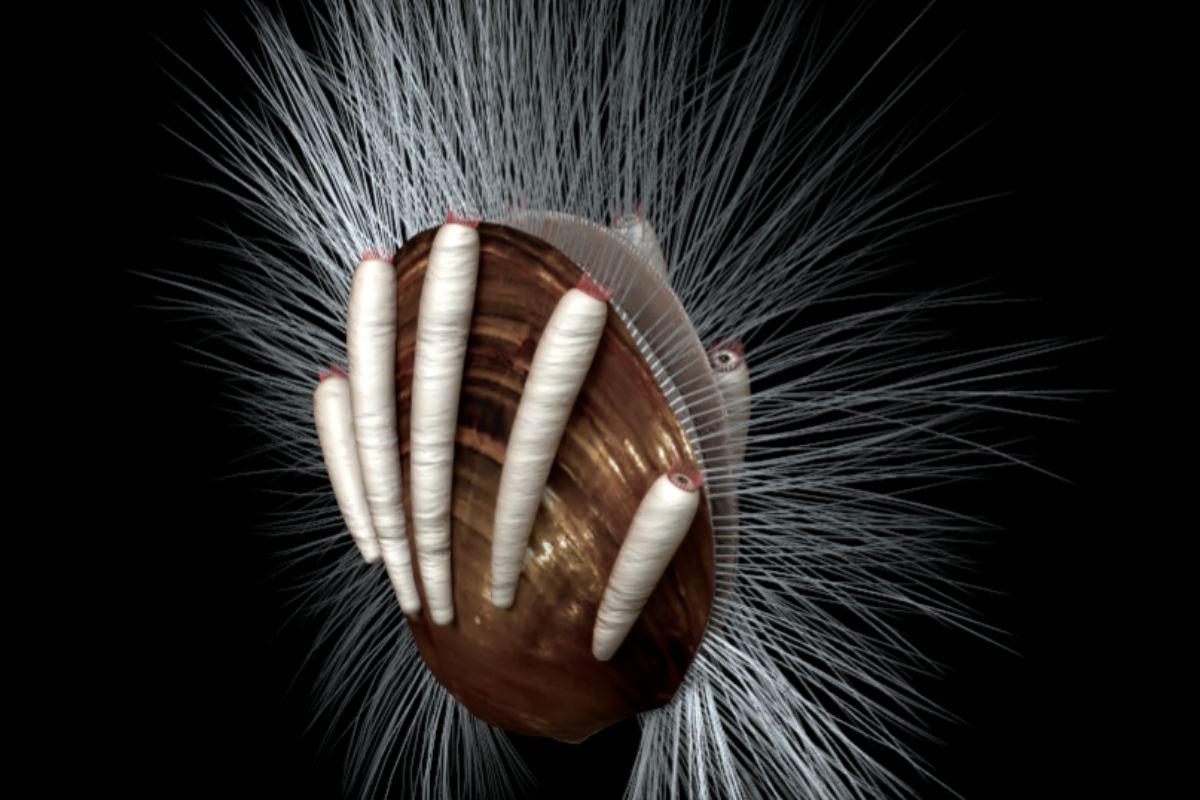- Research: Feathered dinosaurs already had head lice problems
- Science: The new cradle of 'wonderful life' 500 million years ago
More than 500 million years ago, some of the oldest animals on Earth already had to fight parasites. Scientists at Northwestern University in Xi'anhan, China have discovered that brachiopods that lived in the Cambrian, more than 512 million years ago, served as hosts to small organisms that diverted food for their own benefit. It is the oldest parasitic relationship documented thanks to the fossil record. Their finding is published Tuesday in Nature Communications .
Brachiopods are small marine animals similar to bivalve molluscs (a group to which oysters and clams belong). Although today there are some 450 species of brachiopods, based on the fossil record, it is estimated that more than 12,000 varieties populated the Earth at other times. In this case, the analyzed remains belong to a specific species called Neobolus wulongqingensis that inhabited the Cambrian -period that began about 540 million years ago-, discovered in the Chinese province of Yunnan.
Paleontologists found tube-shaped marks embedded in the exterior of their shells on many of the N. wulongqingensis fossils. The brachiopods with these markings were significantly smaller and the tube tracks were perfectly aligned with the animals' digestive system. The authors' conclusion is that they were parasites that clung to the shell to steal food; a variant of what in biology is known as kleptoparasitic behavior.
"Mentions of parasitism in the fossil record are not unusual, but until now, most documented cases revolved around a single sample, or speculative methods," explains Zhifei Zhang, first author of the article. "What we see here are vestiges of hundreds of brachiopods, some with and others without tubes. This allows us for the first time to statistically demonstrate that a Cambrian host was affected, and negatively, in addition, by a parasite ."
Parasitic interactions are difficult to document in the fossil record because most of the conclusions are drawn from observations, since there is no organic matter to analyze. That makes proving that a suspected parasite had a negative effect on a host challenging. Difficulty amplified by the fact that the parasites do not leave fossilized material, since they are generally soft-bodied.
This is why the authors stress the importance of gathering evidence not only of the appearance of parasitism, but also of its effects. "Samples of direct interactions between organisms in fossils are very rare, and often these are isolated events, so we have been very lucky to catch parasites and hosts on the spot," says Zhang.
Parasites play a critical role in ecological systems and are abundant throughout the planet. In some habitats, such as the estuaries of some rivers, researchers have documented that the biomass of flukes - microscopic flat worms specialized in castrating snails - exceeds that of all fish and birds combined. These organisms also perform important functions in the natural balance: in some cases they direct the flow of energy, sometimes keeping pest populations under control .
A team of Japanese scientists discovered that trout obtain 60% of their food thanks to suicide insects, which end up drowning in rivers because of tiny worms that manipulate their behavior.
On the other hand, the study of the organisms that appeared in the Cambrian is an important piece to understand the evolution of life on the planet. About 530 years ago, changes in oxygen levels in the atmosphere resulted in the rapid emergence and diversification of complex organisms.
The animal kingdom underwent a dramatic transformation: from a world dominated by almost immobile creatures that scoured the seabed for food, it moved on to a new fauna of predators and prey , with eyes, jaws, claws, legs and shells. "This is the first testimony of animals that grew embedded in the leaflets during the early Cambrian stage; that represents evidence of a second level of organisms (parasites) that flourished in the same period," concludes Zhang.
In accordance with the criteria of The Trust Project
Know more- science
- Science and health
CienciaDuque admits that the gap in R&D investment between Spain and Europe "is still very large"
AstronomyThe supermoon of flowers will be the last of 2020
ScienceThe coronavirus strikes Spanish archeology: 36 million losses and 55% of unemployed professionals

